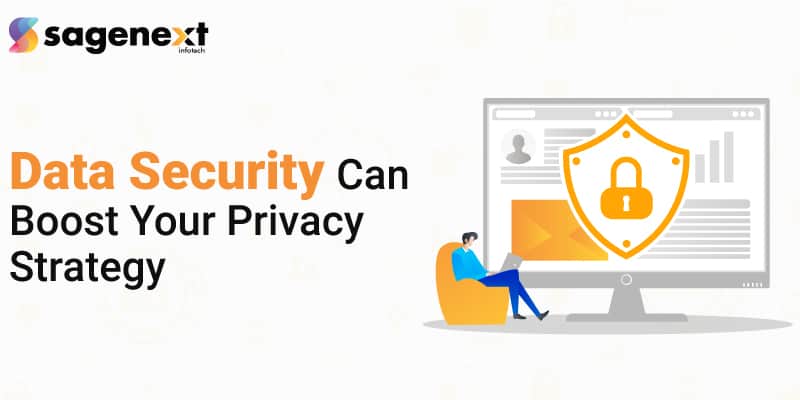The increased penetration of the internet and smartphones has shrunk the world to a mere five-inch screen. Today, all services are just a few taps away from you. This is further leading to produce huge volumes of data.
Studies suggest that we humans are producing an average of 2.5 quintillion bytes of data every day. And if you think this is humongous, just wait for the future. It is estimated that by 2025, we humans will be generating about 463 exabytes of data each day.
This gargantuan data may seem meaningless to common people but it is of huge importance to modern businesses. It is what fuels their growth and innovation, helping them bring products and services that are embraced by consumers with open arms. It offers them valuable insights that enable them to serve their customers like never before.
This data is the real power in the 21st century and as the saying goes, “with great power comes great responsibility”. With these huge volumes of data to handle, comes the challenges of equally huge stature. Businesses have to ensure that this data is always protected and does not fall into the wrong hands. A mere mistake and they may well end up losing all their fortunes, going out of business.
From financial and reputational loss to loss of sensitive data and legal actions, there are serious consequences of what may seem a small data breach to you. Therefore, you must protect your data against the existing threats and simultaneously comply with various data privacy laws that are in place.
This post helps you understand what is data privacy and how data security helps you boost your privacy strategy.
Contents:
What is data privacy and how is it different from data security?
How can data security boost your privacy strategy?
What is data privacy and how is it different from data security?
Data privacy, in simple words, is responsible management of data. It means the data a business collects must be stored, handled, and processed appropriately and in line with the privacy laws defined by the jurisdiction. Data privacy is an individual’s right to visibility into how his/her data is being collected and used.
It is one of the most critical aspects of modern businesses and their data strategies. Therefore, it is immensely important for an organization to handle its consumers’ data responsibly and within the rules defined by the governing authorities.
However, more often than not, people misunderstand data privacy to be data security. They think that both are the same when in reality, they are not. Though they have some significant points common between them, they are not exactly synonymous with each other.
Data security is about implementing various security and protection tools and policies to safeguard data against all sorts of threats like cyberattacks, malware attacks, data thefts, and physical damages, etcetera.
On the other hand, data privacy can be seen as a branch of data security. It is concerned with the appropriate management of data – regulatory obligations, notice, and consent. It practically revolves around the following:
- How the data is legally collected and stored
- Whether or how it is shared with third parties
- Regulatory restrictions like the Health Insurance Portability and Accountability Act (HIPAA), General Data Protection Regulation (GDPR), and California Consumer Privacy Act (CCPA), etcetera.
How can data security boost your privacy strategy?
The difference between data security and data privacy does not mean you can have one without the other. The difference just helps you look at each of them separately and prepare better strategies to secure your data and comply with various data privacy regulations that exist. A robust data security plan is extremely important to ensure data privacy. It helps you strengthen data compliance. Without data security, you can’t have data privacy.
Let’s try to understand how data security can help you boost your privacy strategy through the following data security measures:
1. Authentication
Authentication is the process through which you verify a user’s identity. Every user has his/her unique login credentials like passwords, biometric, etcetera. You verify their credentials to make sure it is a legitimate user trying to log in to your system.
Authentication is one of the most critical aspects of data security as it is your frontline defense against any unauthorized access to your critical data. Sophisticated technologies such as multi-factor authentication (MFA), single sign-on (SSO), and breached password detection, etcetera are making the authentication process more secure without compromising the user experience.
Though secured authentication is a data security measure, it helps you ensure privacy as well. It protects your data from any illegal access and thus, eliminates the possibility of your consumers’ data falling into the wrong hands.
2. Data Masking
Through data masking or data obfuscation, you can protect sensitive personal or commercial data and personally identifiable information. This is achieved by masking your data’s characters with proxy characters. Once the data reaches its end destination, the software can reverse the masking, bringing the data back to its original form.
Data masking ensures that even if someone gets access to your critical data, it is protected because of the proxy characters. That way, you also save your data from being misused by hackers and cybercriminals, ensuring its privacy as well.
3. Data Encryption
Encryption is also one of the critical facets of data security. It scrambles your sensitive information using an algorithm so that it can not be read by anyone. It requires the encryption key to unscramble the data. Hence, no one can read or understand your data, unless they also have the encryption key.
While incorporating data encryption, you must store your encryption keys at a secure location and must also limit access to them to as few people as possible.
Hence, data encryption safeguards your sensitive data, also helping you comply with various data privacy regulations defined by the authorities.
4. Tokenization
Tokenization is similar to data encryption, except that it replaces your sensitive data with random characters instead of encrypting it. The tokens act as a relationship through which you can restore your data to its original form. Here also, it is important for you to store the tokens in a secured and protected database.
Again, tokenization strengthens your privacy strategy by helping you secure your data from unauthorized access.
5. Network Security
You can’t think of protecting your data without actually securing the network over which you connect. You should have a robust set of rules and configurations to be able to secure your confidential data.
The current work-from-home culture amidst the ongoing COVID-19 pandemic poses a much bigger threat to data security. Hence, network security becomes even more important in times like these where the majority of your workforce is connecting from their respective locations. Irrespective of the size of your organization, you need to have a secure network through which your employees can connect to and send information back and forth, without compromising the integrity of the data.
Thus, by securing your network, you ensure your data is protected against all the existing threats, which in turn, maintains its privacy as well.
6. Physical Access Controls
Data access control is another critical element of your data security plan. Physical access control deals with access to the physical location where your data is stored. It can be your on-premise server or a data center.
You can incorporate security measures such as access cards, biometric authentication methods like retinal scans and thumbprint recognition, and security personnel. Together, they define a robust physical access management control.
By physically securing your data, you make sure it is protected against physical thefts and other such threats. It further boosts your privacy strategy by not allowing your data to fall into the cybercriminals’ hands.
Conclusion
Both data security and data privacy are important for your business. If you fail to ensure any one of them, you are bound to face far-reaching consequences which at worst, may even lead to your business shutdown.
Though they are different from one another, you can not ensure one without the other. Say if you fail to secure your data against any threat, then you won’t be able to ensure its privacy. Without data security, you don’t have data privacy. In fact, various data security measures like authentication, encryption, masking, network security, and data access control, etcetera further strengthens your data privacy strategy. If your data is safe and secure, its privacy remains intact.
 written by
written byAbout Author







